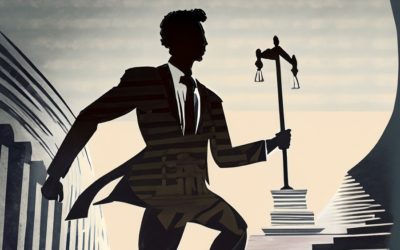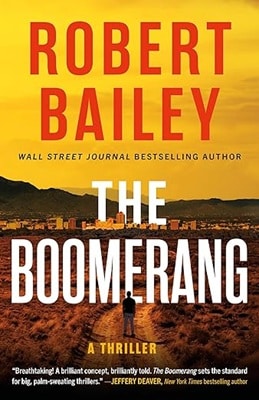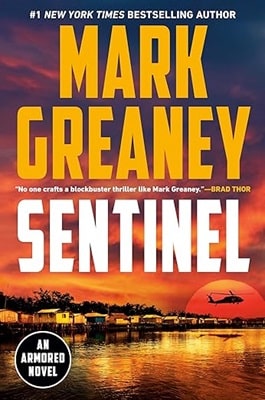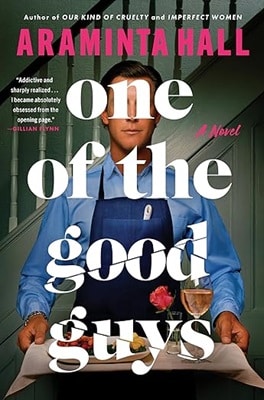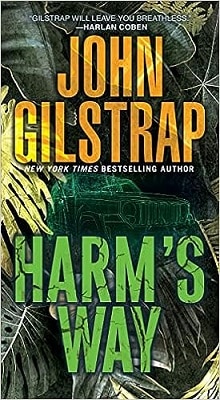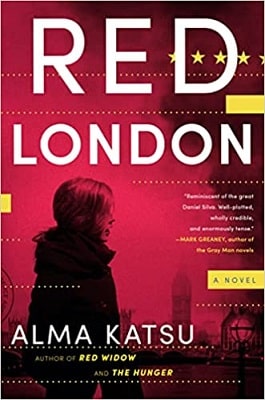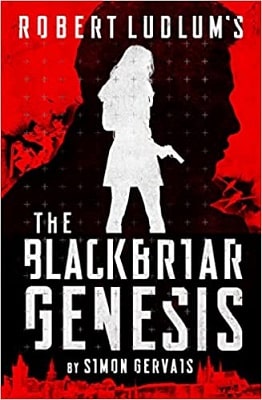
The Art of a Political Thriller
The late Vince Flynn, a thriller writer who was adored by his audience, once said that there was a little bit of a recipe to his novels. “There’s the villainous plot, the hero, the terrorists are the main villains, and the politicians are the secondary villains.” Touché. It was a recipe that worked well for him over the course of his fourteen novel career and allowed him to become a #1 New York Times best-selling author.
But is there only one recipe for political thrillers or are there others that can be followed? Or is there no recipe at all, but certain rules that must followed for a novel to be considered a political thriller? The introduction of a politician into a novel is a tricky one. Once this character is introduced, there is no going back. Like death and taxes, politics is always guaranteed. This is as true in real life as it is in the literary world. What direction the author takes with the politician, though, will essentially determine the direction of the novel. The time has come to examine what literary traits are required for a novel to be considered a political thriller.
The easiest answer is that to be considered a political thriller, a novel’s plot is required have political ramifications should the hero of the novel not succeed in saving the day. Depending on the scope of the novel’s plot, at the very least, these ramifications should be national, and at most, international. After all, if the hero can save the day from a national or global tragedy, but the author does not take the reader down the rabbit hole of exploring the political stakes, the novel will be a short, dull one and the hero’s roadblocks will be minimal. Where’s the fun in that?
What can a reader expect when picking up a novel that has a politician as the main character? For certain, the novel will be 100% politics based and the reader can expect to be taken on a ride of backstabbing as well as twists and turns as the plot develops. This allows the author to develop the main character over the course of the plot. Is he or she an honest or are they as shrewd as the surrounding characters? Better yet, are they the type who orders bad deeds to be done to beat their political rivals at their own game and create the most honest outcome? Either way, a novel with the politician as the main character will be a much more character-based novel rather than being action packed. This is not to say that there no action. A political rival is just as prone to dying by an assassin’s hand as is a CIA spy or FBI agent. What it does mean for the reader, though, is the chapters with an abundance of dialogue should be read carefully because this is where the true action takes place. The slightest change of a word being used in dialogue or the written point of view of a character’s facial ticks can be the difference in the main character making a decision. Novels with politicians as the main character are compelling and leave the author with the feeling of elation when their main character outsmarts the villain but are largely one-dimensional because the bulk of the plot stays within the political box.
Whereas having the politician as the main character makes for more of a one-dimensional story, I would contend that having politicians as secondary characters is where the most fun is for both the reader and author because it opens so many doors of possibilities. The virtuous politicians will fight tirelessly on behalf of the hero to help the hero succeed in his or her goal. The best written villainous political characters will not only use all of their power to impede the hero from saving the day but will always serve in their own interests. This is where the two supporting characters end up having a duel of wits. Which one can more slyly outmaneuver the other, and how is the outcome for the hero affected in either direction? The answer to that question is what allows the hero to venture out of his world of physically fighting the enemies on the battlefield and become involved in the political world. Depending on how the hero character is written, his or her confrontation with a meddling politician can either create a goldmine of dialogue or reveal how in over their head the hero is to the situation at hand. Vince Flynn did this better than any author on the market. He made the politicians so slimy and despicable that readers wanted to jump through the pages to strangle them, and then felt a heavy, euphoric relief when his character, Mitch Rapp, did the work for them. The so-called downside of these types of novels is that they blur the lines between political thrillers and other genres. These are the type of novels that have create a hybrid of political spy thrillers, political romances, or even political fantasies.
But what if the politician is both a secondary character and the main element of the plot such as the president getting kidnapped or a coup has occurred in a country that is a nuclear power? Ah, now we’re talking about butter melting on top of a hot muffin. In such cases, the mix of the author’s notoriety and intrigue of such a plot line will normally have readers hitting the “Buy Now” button on Amazon with considerable ease. Such novels are a call back to the childhood “Choose Your Own Adventure” books from the 1980’s. While the reader isn’t exactly choosing where to follow the characters, the best authors in the thriller genre know how to mix the right amount of action with their elite sense of timing in going back and forth between the physical action on the battlefield and the dramatic action of the political scheming that is happening behind the scenes. In such cases, the author has the luxury of not worrying about placing his or her novel into the category of classical or hybrid political thriller. The readers will do that for them. The best-case scenario for the author is that the readers will argue this point back and forth, which ultimately helps generate sales.
While political thrillers can be neatly categorized as I have done here, the true beauty of a political thriller is that it is a genre that they can consistently evolve because, in the end, the recipe for a successful political thriller resides in the mind and at the fingertips of the author. If author has a recipe that works, readers can expect that the author will continue to mold the recipe in such a way that the readers do not care that it exists. If the author craftily inserts politicians without giving them much face time throughout his or her novels, expect that the politicians’ play a role in such a way that the outcome comes full circle back to their actions. However, these rules, categories, and guidelines are only defined by the types of political thrillers that have already hit the market. The dark side of politics always allows authors to find new ways for their heroes to maneuver around the land mines that have been placed in around of them. The best part about this for readers is that we all can’t wait to see what authors come up with next.
For fans of political thrillers, traditional or hybrid, I recommend the following novels.
The Hunt for Red October by Tom Clancy
This is the novel that introduced me to the political thriller genre. Both the book and the movie have stood the test of time, and will continue to do so, because Clancy so expertly crafts the plot to be a mix of Jack Ryan’s pursuit of the Russian submarine as well as the political ramifications of Captain Marko Ramius’s plans to defect to the United States and hand the sub’s technology over to the Americans. John Le Carré may have been the author to beat in the early days of the Cold War, but this novel proves that Clancy was an author that was best suited to write the types of novels at the latter stages of the Cold War when technology was getting dangerously close to surpassing diplomacy as a means of communication.
The Pelican Brief by John Grisham
Is there a better way to fictionally make Supreme Court justices the center of a novel’s plot than to use a rogue theory from a law student? This was the novel that proved to me how diverse Grisham can be in his books. While many of his other books have political ramifications on the outskirts of his main plots, The Pelican Brief puts the government front and center and shows how the Supreme Court is the foundation of change in our country. And if you love chase scenes, Grisham writes them in a way that shows that he has just as many tools in his literary bag as Ian Fleming. His Hitchcockian use of an Average Jane law student as the main character can’t be overlooked either. Readers such as myself love being placed in their shoes.
The Last Jihad series by Joel C. Rosenberg (The Last Jihad, The Last Days, The Ezekiel Option, The Copper Scoll, Dead Heat)
Readers will find fewer thriller novels in existence than Joel Roseberg’s Last Jihad series simply because the politics of the world is both the main character and is put on trial by what is read in the bible. With great skill, Rosenberg examines the writings of the bible and devises as series of cataclysmic events both in the United States as well as multiple countries in the Middle East that allow the readers to examine our surroundings and debate whether the geo-political events that we see playing out on the nightly news are foretold to us by the bible. Rosenberg takes the action and plot lines to the extreme, and we expect nothing else for entertainment purposes, but there are deep elements of truth sprinkled throughout the five individual plots. Despite these novels now being nearly twenty years old, one can’t help but wonder we are living in the last days before the rapture.
Extreme Measures by Vince Flynn
Clancy was definitely the best author for the latter stages of the Cold War, but Vince Flynn proved to be the best author for the post 9/11 era. The idea for the novel came out of a conversation that Flynn had with one of his CIA sources at lunch. Hoping to hear some ideas about what terrorists are up to these days, he asked the question of “What keeps you up at night?” The answer surprised him because the agent replied that what kept him up at night was not the terrorist plots but the fact that he was fighting for his country and was afraid that the FBI would be waiting for him as he got of the plane to arrest him for his actions and tactics overseas. While the novel was not considered Flynn’s best when it was first released, it gained a substantial amount of traction as news of the enhanced interrogation tactics were leaked to the news media in the wake of the Abu Ghraib Prison scandal. To this day, it represents a true debate as to what means the intelligence agencies can take against terrorists with no country who are willing to martyr themselves for their cause.
Absolute Power by David Baldacci
This book was the one that not only put Baldacci on the map, but his use of the President of the United States as the villain was nothing short of genius. Sure, there had been other novels before its time that perceived the president to be a slimy guy with nothing but his self-interests at heart, but none of them had him in the middle of both a sex scandal, a murder, and a cover-up rolled into one. In the wake of the Monica Lewinsky scandal, the book sales skyrocketed and helped elevate Baldacci to the status of the premier novelist that he remains to be today. But even without the real-life sex scandal, Absolute Power stands on his own two feet. It challenged the status quo of political thrillers for its time, and in my estimation, helped redefine what it could be.
About the Author
Matt Scott holds a BA in Political Science and History from Hampden-Sydney College, a liberal arts institution in central Virginia, where he studied under former Director of the Defense Intelligence Agency, General Sam Wilson. He currently resides in Charlotte, North Carolina while continuing his career in the field of logistics and supply chain.
In December 2020, he signed a three-book deal with publisher Speaking Volumes to write a series of novels all concerning the Iranian threat to the West. His debut novel, Surviving the Lion’s Den, has received critical acclaim. The sequel, The Iranian Deception, was released in June. The final book in the series, The Ayatollah Takedown, has a tentative release date of early 2023.
Website | Facebook | Instagram | Twitter

More Thriller Features
Political Thriller Protagonists
What are the qualities of a good protagonist in a political thriller?
Spy Thriller Villains
Unraveling the Bad Guys of Espionage Fiction
Political Thrillers for Independence Day
4th of July Political Thrillers

